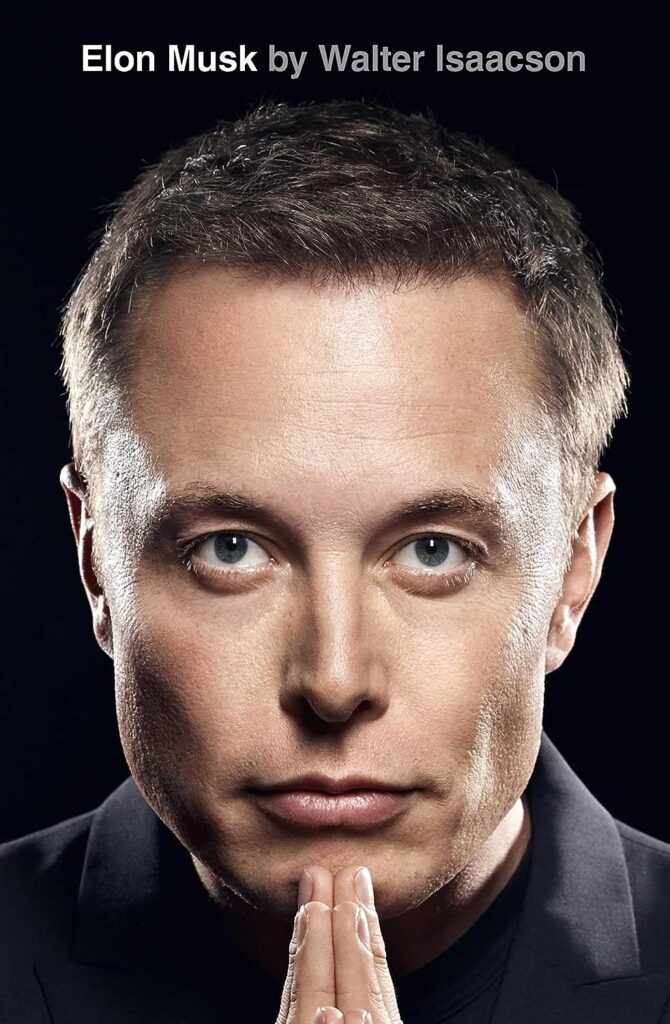In terms of revolutionizing the world and pushing humanity forward, Elon Musk has easily been one of the most consequential figures in the last decade. Not only did he make electric vehicles profitable, but he somehow also did the same with rocket science. At the moment, Musk is busy developing self-driving cars, neural transmitters, and high-functioning androids.
Thus, it is right and just that an acclaimed biographer like Walter Isaacson tells the Musk story. The example of a self-made visionary overcoming obstacles is nothing short of inspiring. More importantly, his experience as a member of Generation X (those between 45 and 60) is representative of many in his age group.
Naturally, the biography emphasizes Musk’s technical genius and indomitable will. At so many junctures in his life, Musk drives both himself and his employees to do amazing things, like produce thousands of Teslas in an impossibly short timeframe or design a reusable rocket that can safely transport astronauts to the international space station.
These great feats, however, often come at great human cost, with Musk and his crew often hitting the breaking points of sanity and emotional stability. In such moments, Musk goes into “demon mode,” brutally criticizing and firing employees, denouncing and mocking the competition, and desperately looking to distract himself from a deep internal darkness (usually through work).
Although Musk and his biographer will attribute these manic episodes to his undiagnosed Aspergers Syndrome or his commitment to greatness, a Christian would rightly conclude that almost all of his personal turmoil stems from the absence of a spiritual life.
Musk is one of the richest and most celebrated men in the world, yet he also has to be one of the loneliest and saddest, bereft of community, meaning, and love. At one point, he told admirers: “I’d be careful what you wish for. I’m not sure how many people would actually like to be me. The amount I torture myself is next level, frankly.”
Like many of his generation, Musk, 52, grew up in a broken household. He had a callous, emotionally abusive father and a vain, passive mother. Inevitably, they divorced as their children reached adolescence. Musk technically attended a Christian school in South Africa, but his family never went to church. Instead of learning how to pray and cultivate virtue, he learned how to fight and write programs. Upon experiencing “existential depression” as a teenager, he found solace in reading The Hitchhikers Guide to the Galaxy and playing video games.
This background made him tough, resourceful, and well-positioned to thrive in America in the 90s and 00s, but it also made him temperamental and restless. Again, like many in his generation, he filled the hole in his heart with an addiction to work and video games. This led him to make his first fortune with Zip2, then another with PayPal, then another with SpaceX, and then another with Tesla. Each time, he would launch a project “surge,” mandating long hours, maximizing efficiency, berating employees, and constantly taking risks.
Rather than being motivated by fame or fortune, Musk was driven by something much greater: faith. Except that the faith he embraced was the nebulous idea of human “progress,” not organized religion. Judging from his comments, his idea of heaven includes cyborg humans, friendly non-woke robots, spaceships going to Mars, and gloriously high birthrates. It’s a vision somewhat like Ray Bradbury’s short story, “Mars Is Heaven!,” but without the tragic ending.
Despite his uncompromising disposition, Musk has disciples who look up to him as a kind of messiah. As one might imagine, those close to Musk have the same outlook on life as he does. They go “hardcore” with their duties, dispense with personal attachments, and attempt to do the impossible. In a revealing exchange between Musk’s longtime employees, one of them admitted, “I was burned out [working at Tesla]. But after nine months [elsewhere], I was bored, so I called my boss and begged him to let me come back. I decided I’d rather be burned out than bored.”
Somewhere up in heaven, Blaise Pascal, who once wrote that “All man’s troubles come from not knowing how to sit still in one room,” is likely shaking his head and sighing at these poor souls. While they have applied their remarkable brainpower to things that Musk proudly declares are “far cooler than whatever is the second coolest,” they have sacrificed the very thing that makes them human in the first place: relationships, contentment, and purpose.
At what point can people finally settle down and rest in their accomplishments? When does the constant striving end? What would have to happen to Elon Musk or his disciples for people to realize that this is not a good model for a rich and fulfilling life? If constant work is the way to heaven, does that mean retirement is the way to hell? Was Ayn Rand right after all that our world is lifted by atlases and fountainheads simply being their brilliant selves?
Put simply, the hustle never stops. Of course, it could be worse. One of Musk’s many envious opponents in business or government could take him down and impose on all of us a drab, regressive police state that opposes human achievement and independence. This possibility has made most conservatives generally supportive of Musk who at least believes in free speech, industry, free markets, and humanity.
It’s important to realize, however, that human life could be made better, yet Musk will not be the world’s savior. The real progress to be made by society does not reside in rockets and robots, but in community and contemplation. True, these goods can coincide and complement one another, but the former should not overtake the latter. Before man was made for work, he was made for love.
Let’s hope that Elon Musk and the many who share his post-Christian faith in technology and themselves will come to realize this before they burn out for good.
















